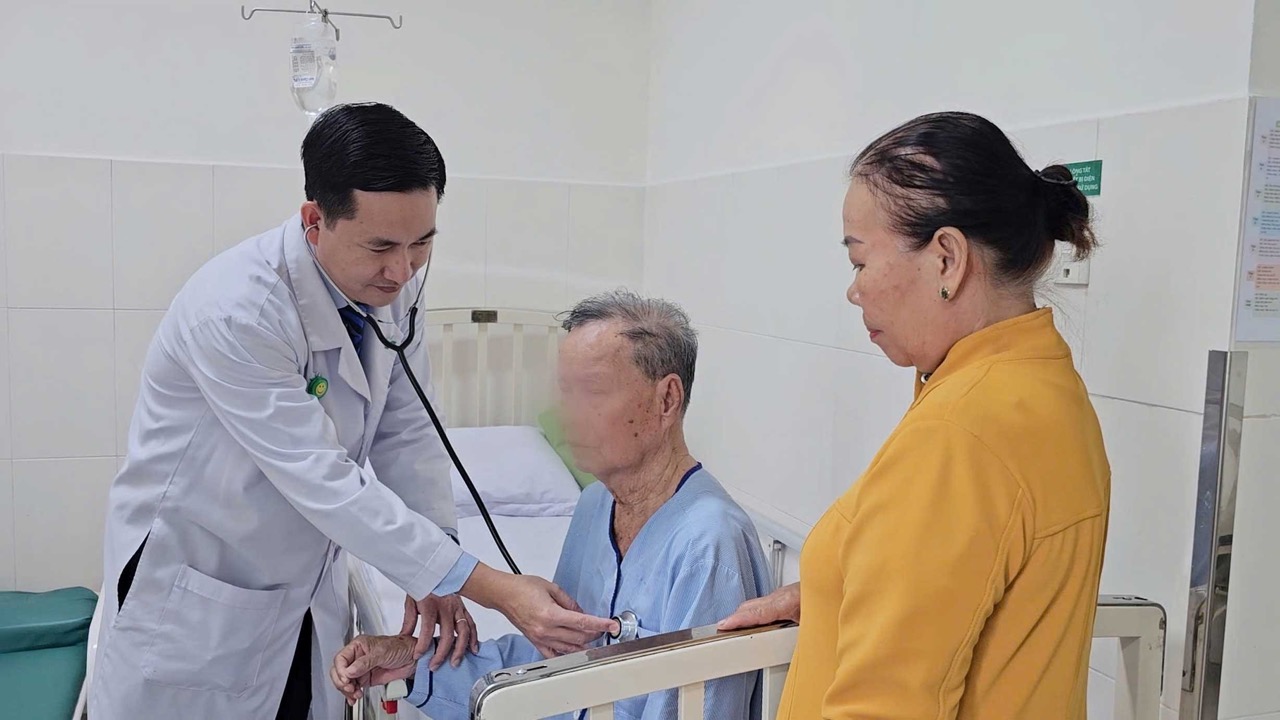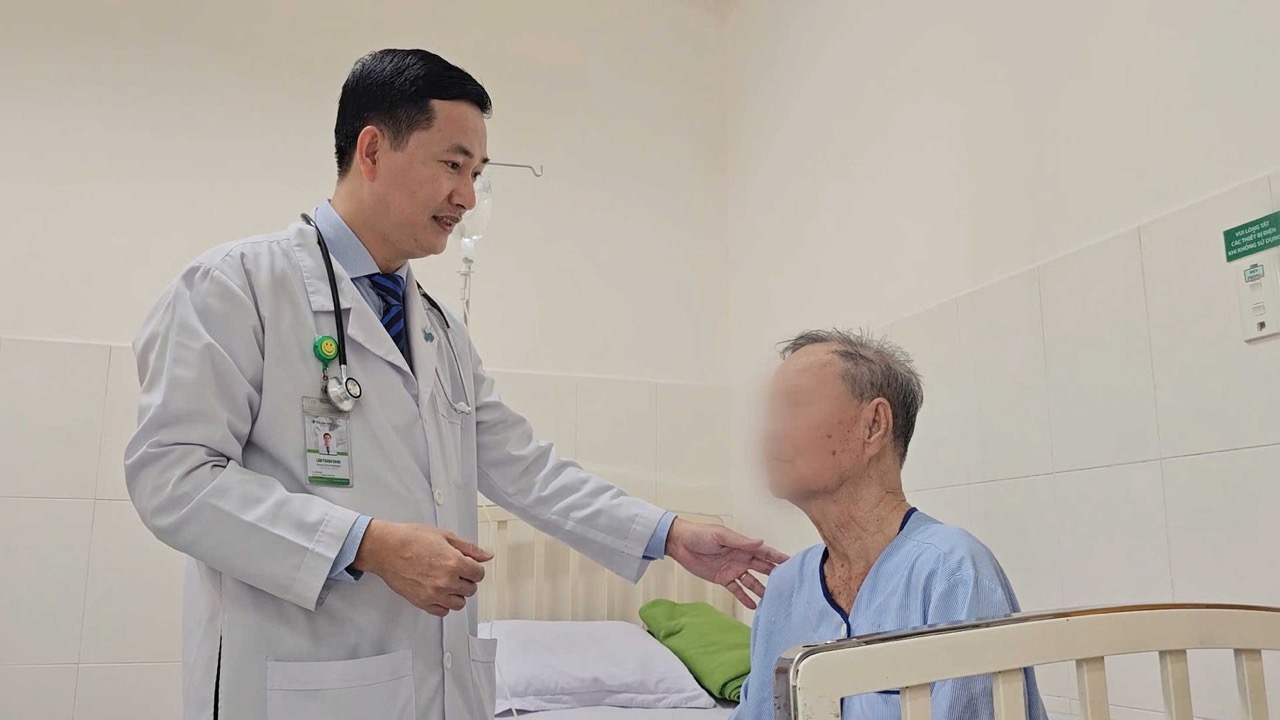The patient, Mr. T.V.L (75 years old, from Vinh Long province), was admitted to the emergency room at Hoan My Cuu Long Hospital (Can Tho) in a state of exhaustion, difficulty speaking, coughing and fever for 3 days. The family said that recently, the patient had been tired, thirsty, had a dry throat and lost weight rapidly. The patient had a history of high blood pressure and stroke.

The Emergency Department doctor examined and ordered a blood test for the patient, the result was 799mg/dl, nearly 8 times higher than the normal blood sugar level (normal blood sugar index is from 80 - 100mg/dl).
After performing the necessary paraclinical tests, the patient was diagnosed with: type 2 diabetes, ketoacidosis, hypertension, community-acquired pneumonia, sequelae of cerebral infarction, and monitoring of prerenal acute kidney injury.
Immediately afterwards, the patient was consulted at level 2 and quickly transferred to the Intensive Care and Poison Control Department (ICU) for active treatment, fluid replacement according to the protocol, blood sugar control with continuous insulin infusion, bicarbonate replacement, antibiotics, general condition improvement, and hourly monitoring of blood sugar, urine, and electrolytes.
After 2 days of intensive treatment, the patient regained consciousness, his blood sugar gradually stabilized and he was transferred to the inpatient unit for further treatment. After 7 days of treatment, the patient was discharged and is being monitored for outpatient check-ups. Blood sugar, liver and kidney function, electrolytes, and hemodynamic parameters returned to normal.

Specialist Doctor 2 Lam Thanh Danh - Deputy Head of the Department of Cardiology, Hoan My Cuu Long Hospital - said that the patient's blood sugar index was nearly 8 times higher than normal, this is a rare condition for normal people, relatively common in elderly people with diabetes, with a risk of death if not promptly treated.
Dr. Danh also recommends that older people need to be screened every 6-12 months at medical facilities to detect diabetes early and treat it actively from the beginning. Adherence to the treatment regimen is most important to closely control the condition of living with the disease.
“In the treatment of diabetes, the effectiveness depends largely on the patient's self-management awareness. 70% of type 2 diabetes cases can be prevented or delayed by implementing a healthy lifestyle. For people with diabetes, when they see unusual signs (fatigue, sweating, thirst, frequent urination...) while taking medication, they need to go to a medical facility immediately for a re-examination and medication adjustment,” Dr. Danh added.



